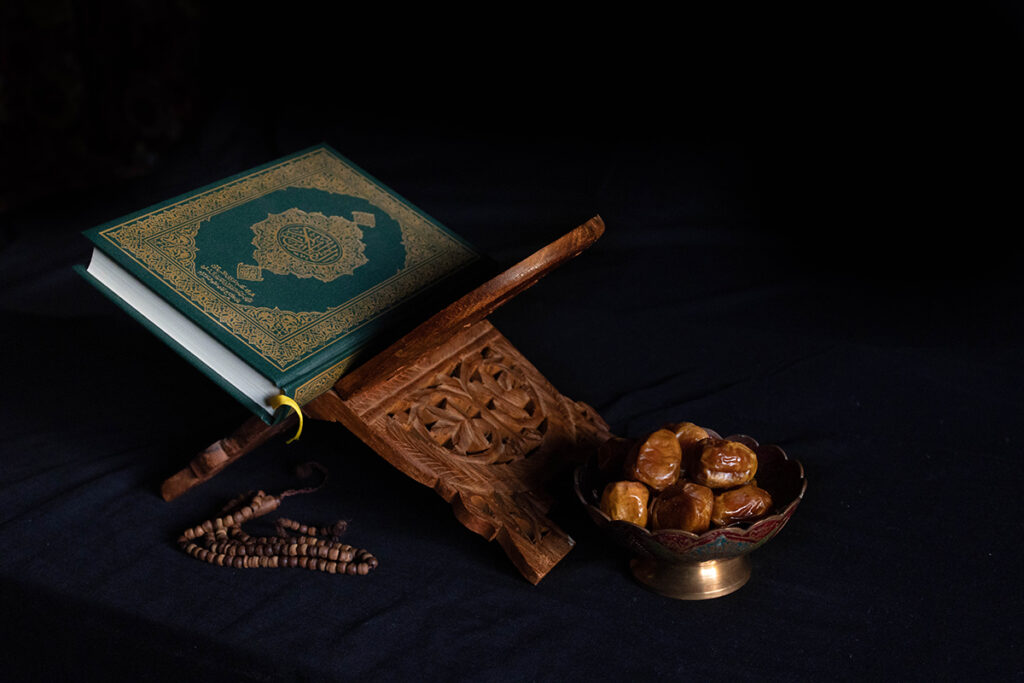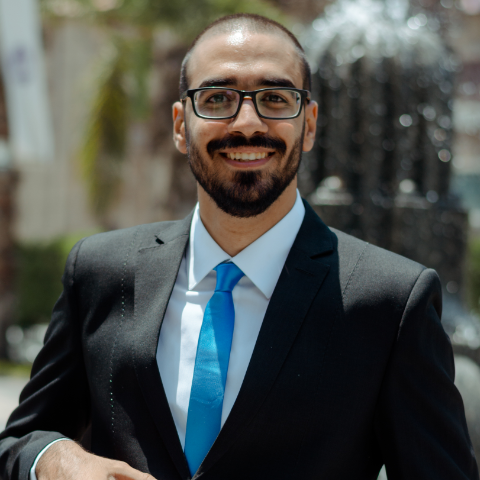Dawn Until Dusk Abstinence, Good Deeds, Generosity

This past Monday marked the start of Ramadan, as members of the Minnesota State Mankato community joined the month-long sacred time of fasting and prayer observed by Muslims worldwide.
Ahmed Ashraf, graduate assistant for the Kearney Center for International Student Services, offered a greater understanding of this most sacred time for the Islamic culture.
What is Ramadan?
MR. ASHRAF: Ramadan is the ninth month of the Islamic Calendar. It is the most sacred month of the year for Muslims.
What is its religious significance within the Muslim community?
MR. ASHRAF: Ramadan commemorates prophet Muhammad’s first revelation when the Angel Jibril (Gabriel in English) visited him to bestow the first chapters of the Holy Quran upon him.
How is Ramadan observed?
MR. ASHRAF: During Ramadan, Muslims fast from dawn ’til dusk by abstaining from food, drink, sexual activity, and all forms of immoral behavior, including impure or unkind thoughts. They are also required to do good deeds like donating a certain amount of food and money to the poor, helping others with their “iftar” breakfast meals, and to generally be more generous with everyone.
Ramadan 2021 officially started this week. How is the date determined?
MR. ASHRAF: Ramadan starts by observing the moon. Since the Islamic Calendar is a Lunar Calendar, Ramadan (the ninth Month) begins by observing the Crescent Moon. Once it is observed, it marks the ending of the previous month, and the beginning of the new month (Ramadan).
How long does Ramadan last? How is the last day of Ramadan observed?
MR. ASHRAF: Ramadan lasts typically for 30 days, or 29 days in some years depending on the moon. Again, the Islamic astronomers observe the moon, and once they find the crescent moon, it marks the end of Ramadan and the beginning of “Eid” celebrations and the next month.
How is fasting conducted during Ramadan? Are there other activities/observances during Ramadan?
MR. ASHRAF: Muslims fast from dawn till dusk by abstaining from food, drink, sexual activity, and all forms of immoral behavior, including impure or unkind thoughts. Muslims in Ramadan devote themselves to worshipping Allah, reading Quran, praying, doing good deeds, and reflection on life and spirituality. After Iftar (the meal which Muslims break their daily fast with), there are prayers at night called “Tarawih” which recite the whole Quran over the course of Ramadan. These prayers aim to lift the spirituality of Muslims and their connectedness with Allah and with each other. Additionally, Ramadan is a time for families to visit each other and hold “iftar” together.
Do all Muslims observe Ramadan? Are there people who are exempt from fasting?
MR. ASHRAF: Fasting from sunrise to sunset is obligatory “fard” for all adult Muslims who are not acutely or chronically ill, traveling, elderly, breastfeeding, diabetic, or menstruating. Muslims who cannot fast for any additional reasons are also exempt from it; they are even encouraged not to try until they get better or until the reason stopping them from fasting is over. Additionally, Muslims who live in regions with midnight sun or polar night should follow the timetable of Mecca (The capital of Islam) or follow the timetable of the closest country in which night can be distinguished from day.
Are there special foods for Ramadan, for example, dates, that are significant to Ramadan?
MR. ASHRAF: Yes, dates are significant since it is “Sunnah” for Muslims. Sunnah is what our prophet used to do. There are many foods that are popular in Ramadan, but they differ from country to country.
Several places in the Twin Cities offer Iftar menus. Do you know if there are any restaurants/dining establishments doing that in the Mankato area?
MR. ASHRAF: Some food establishments here in Mankato provide Muslim students with breakfast meals via donations from professors and alumni.
Is Ramadan being observed differently due to COVID?
MR. ASHRAF: COVID has obviously affected every aspect of our lives, and Ramadan was no exception. Firstly, many families could not get together for fear of contracting the virus or spreading it. Second, Imams closed Masjids (Mosques) and tarawih was not performed last Ramadan to try and stop the spread of the virus. Donations to the poor had to shift to include basic PPE as well as provide guidance and medications for those who need it. Ramadan is a month of unity and solidarity, and since Muslims could not do it the traditional way, they had to adapt. Zoom iftars, donations of essential items, Virtual Eid celebrations were some of the ways Muslims coped with COVID.
Do you think COVID restrictions will be lessened this year, thus offering more opportunities for mosque/group prayer this year?
MR. ASHRAF: We are still unsure yet, the mosques that we have here in Mankato have not yet announced that there will be group prayer. They are actively monitoring the situation to see when they can get group prayers back.
Ahmed Ashraf is a graduate assistant with the Kearney Center for International Student Services pursuing his Master’s Degree in Data Science at Minnesota State Mankato. A native of Cairo, Egypt, he holds his Bachelor’s Degree in Computer & Systems Engineering. Working with the KCISS, he is always happy to help any international student with any inquiries regarding their academic or professional careers.

